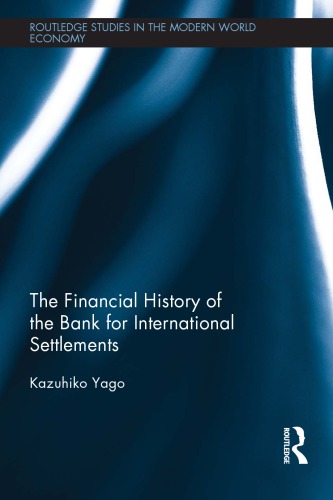

Most ebook files are in PDF format, so you can easily read them using various software such as Foxit Reader or directly on the Google Chrome browser.
Some ebook files are released by publishers in other formats such as .awz, .mobi, .epub, .fb2, etc. You may need to install specific software to read these formats on mobile/PC, such as Calibre.
Please read the tutorial at this link: https://ebookbell.com/faq
We offer FREE conversion to the popular formats you request; however, this may take some time. Therefore, right after payment, please email us, and we will try to provide the service as quickly as possible.
For some exceptional file formats or broken links (if any), please refrain from opening any disputes. Instead, email us first, and we will try to assist within a maximum of 6 hours.
EbookBell Team

4.3
48 reviewsThe Bank for International Settlements (BIS), founded in 1930, works as the "Bank for Central Banks". The BIS is an international forum where central bankers and officials gather to cope with international financial issues, and a bank which invests the funds of the member countries. This book is a historical study on the BIS, from its foundation to the 1970s. Using archival sources of the Bank and financial institutions of the member countries, this book aims to clarify how the BIS faced the challenges of contemporary international financial system.
The book deals with following subjects: Why and how the BIS has been founded? How did the BIS cope with the Great Depression in the 1930s? Was the BIS responsible for the looted gold incident during WWII? After the dissolution sentence at the Bretton Woods Conference in 1944, how did the BIS survive? How did the BIS act during the dollar crisis in the 1960s and the 1970s? A thorough analysis of the balance sheets supports the archival investigation on the above issues.
The BIS has been, and is still an institution which proposes an "alternative views": crisis manager under the Great Depression of the 1930s, peace feeler during the WWII, market friendly bank in the golden age of the Keynesian interventionism, and crisis fighter during the recent world financial turmoil. Harmonizing the methodology of economic history, international finances and history of economic thoughts, the book traces the past events to the current world economy under financial crisis.